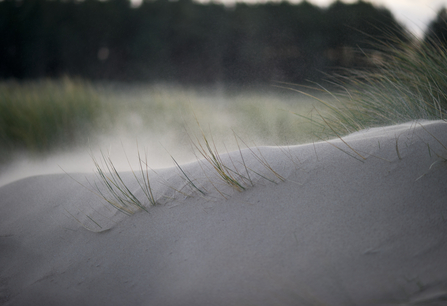- Sand dune habitats have declined by a third since 1900, putting endangered species at risk
- £4m from The National Lottery Heritage Fund for a pioneering project led by Natural England in partnership with the National Trust, Plantlife, The Wildlife Trusts and Natural Resources Wales
- Citizen scientists and communities will make the difference to help England and Wales’ most important dunescapes get moving and thriving again
A radical new approach to managing sand dunes that aims to reverse over 100 years of decline has been given £4m funding from the National Lottery.
Sand dunes - the backdrop of many summer holidays - are being smothered by invasive plants, destroying the habitats of some of our most endangered species.
Now, a pioneering partnership - Dynamic Dunescapes - backed by £4m from the National Lottery is stepping in to save them by working with people to bring life back to the dunes and get them thriving again – reversing a decades old approach to dune management.
Sand dunes are listed as the habitat most at risk in Europe
Sand dunes are listed as the habitat most at risk in Europe. Since 1900, the UK’s sand dunes have declined by a third, climbing to nearly two-thirds in Wales. They provide sanctuary for endangered plants and animals with seventy priority species largely restricted to dune habitats including the natterjack toad, dune gentian and sand lizard.
Dunes are naturally mobile and need to be dynamic to be effective ecosystems. However, previous management measures restricted public access, and invasive species have prevented dunes from moving, causing many to become static, sterile grassy hillocks.
Thanks to National Lottery players, Natural England has teamed up with the National Trust, Plantlife, The Wildlife Trusts and Natural Resources Wales to combine their expertise and achieve a sustainable future for sand dune landscapes working closely with landowners and communities.

